|
It’s hard to believe that COVID-19 began to take hold of the Mid-Atlantic region of the United States just two weeks after Ash Wednesday 2020. As we approached Holy Week last year, dry jokes abounded as to whether or not we had to continue to give things up during Lent as COVID-19 had already forced us to give up so much. Well, those jokes have returned a year later as Ash Wednesday is just around the corner and the pandemic is still very much a reality in our lives. Lent is a period of the Catholic Big Three: prayer, fasting, and almsgiving. This preparatory and penitential season helps to prepare us for the glory of the Resurrection. Most Catholics know the drill: you give something up for Lent (and hopefully take something on as well) as you have Easter Sunday circled on your calendar. But last year threw us all for a loop. Used to giving up chocolate or swearing, we were forced to give up worshiping in Church, seeing loved ones, going to school, and so much more. In the months since, almost every person knows someone who has contracted or even died from the COVID-19 virus. Though Lent ended on Easter in 2020, it feels as though it still hasn’t quite ended. We’ve abstained from holiday gatherings, birthdays, and so much more than we’d ever planned, even during the Lenten season. Lent, though, is the perfect lens through which to view the COVID-19 pandemic. Even during this penitential season, we don’t forget the glory of the Resurrection. Yes, the “A-word” and the Gloria are omitted from the Mass. Sure, we focus on the preparation and the penance, but we still receive and glorify our Lord. Even though we are without so much now in the Lent-like COVID-19 pandemic, we still praise the Lord. The last line of Psalm 150 reads, “Let everything that has breath give praise to the Lord.” Not just during the liturgical seasons of Ordinary Time, or Christmas, or Easter, but at all times, everything with breath should praise the Lord. This continues even now, with so much going wrong in our world. With so much suffering and pain—from which none of us are immune—there is still reason to praise the Lord. Baptisms and First Communions still occur. Marriages are still celebrated. Four of my closest friends were married this past summer—which brings new context to the promises of commitment in sickness and health. Even when there has been suffering, God has still managed to bring good out of it. When my own grandfather passed away in October, I was able to spend the last few days before his death with him. This was a time whose memory I cherish, and time I’m not sure we would’ve gotten if he hadn’t gone to his eternal rest. As I’ve gone through my own sickness over the last few months, I’ve made Psalm 150 my mantra of sorts. My life hasn’t been perfect, but God has ordained it and he has sustained it. He has given me breath and life, and for that I praise him. As Matt Maher says in his song Alive and Breathing, “Let everything praise the Lord, in the working and the waiting…in the dying and the rising, let us praise the Lord!” With Lent coming up, and COVID still wreaking such havoc in our world, let everything that has breath praise the Lord! For more Lenten resources, please click here. For more resources to help you navigate COVID-19, please click here.
1 Comment
“Because children have abounding vitality, because they are in spirit fierce and free, therefore they want things repeated and unchanged. They always say, "Do it again"; and the grown-up person does it again until he is nearly dead. For grown-up people are not strong enough to exult in monotony. But perhaps God is strong enough to exult in monotony. It is possible that God says every morning, "Do it again" to the sun; and every evening, "Do it again" to the moon. It may not be automatic necessity that makes all daisies alike; it may be that God makes every daisy separately, but has never got tired of making them. It may be that He has the eternal appetite of infancy; for we have sinned and grown old, and our Father is younger than we.” G.K. Chesterton, Orthodoxy Today on the feast day of St. Therese of Lisieux, affectionately known as the Little Flower, I turn to my sons’ example in accepting everything completely from God. My almost two-year-old is predictable: he loves blueberries, watching the garbage truck pick up trash on Mondays and Fridays, and playing in the backyard. Recently he has taken to playing with a giant cardboard box that my husband engineered into a “cottage” with a window and a workable door. The joy and excitement he exudes each morning playing with his cardboard cottage didn’t strike me at first. But after a few rounds of him serving me imaginary chocolate milk and tea from his little abode, I realized that this joy, the same joy and freedom he has when running ferociously to the front of the house to see the garbage being picked up, is the joy and freedom St. Therese of Lisieux wrote about and emulated in her life. “To remain a child before God means to recognize our nothingness, to expect everything from God. It is not to become discouraged over our failings, for our children fall often, but they themselves are too little to hurt themselves very much.” St. Therese of Lisieux Therese gives us the example of radical abandonment to the Father’s will. When we take a snapshot of her life—where she lived most of her life, whom she met, what accolades she was awarded—we see that her life was not much in worldly standards. And yet, Therese is honored with the title “Doctor of the Church.” Her writings and her example of charity beckon us to take a closer look at this simple and great saint. While Saint Therese is a heavily pestered saint when it comes to intercession (as her intercession is known to be great) and her quotes are seen often, today let us take after her childlikeness and see the world through her eyes with childlike abandonment to God. I encourage you to find five beautiful things in the mundane of your day that your eye has not yet “truly” seen before. Thank and praise God for the life He has given you, in all its sufferings and joys, and ask for St. Therese’s intercession in seeing the beauty in the mundane. For more resources on Marriage and Family, please click here. As the ongoing coronavirus pandemic eventually allowed for opportunities to leave the home, one of the most meaningful greetings which welcomed my return to Mass were the familiar words, “Peace be with you.” The calming presence of the parish priest eased the troubles of my mind, soothed the restlessness of my heart, and enlivened my soul to sing, “Let us go unto the House of the Lord!” While the celebration of the Holy Sacrifice of the Mass and the reception of our Lord in Holy Communion immediately made up for the lost time during the pandemic, there were other reminders that we had been away: new priest assignments, reminders to exchange the weekly offering envelopes, many parishioners enthusiastically greeting each other in happy parking lot reunions, our pastor sporting a new beard, and someone even observing, “You’ve lost some weight, Father!”
The place our parish priests hold in our hearts is a treasured one. We depend on them to teach us through homilies, expose the Blessed Sacrament, listen to our sins and offer absolution, preside over the nuptial Mass, baptize our children, anoint the sick, and console us through times of death. And that’s just the minimum. While the rest of us are busy at work, school, or caring for our households, our parish priests are meeting with the church leadership, making rounds at schools or hospitals, organizing retreats and special services, offering spiritual guidance, and working at the rectory. But caring for the spiritual needs of hundreds of parishioners does not end at 5 PM. Starting from the sacred occasion of ordination, a priest is always on-call. Who rushes to the side of the dying, cares for those who have lost everything, counsels those in conflict, or ministers through any number of crises? Who faces the mounting expenses and bills of the parish, limited Sunday collections, possible stagnation of new family registrations, and who perhaps lacks as many helpful hands as he would like to keep the place running smoothly? Especially through this pandemic, the parish priest again and again is called to bring us into an encounter with Jesus Christ as best he can with whatever resources are at his disposal. If caring for our household’s needs presents a challenge, just imagine how the parish priest feels overseeing his parish! As the Church celebrates the feast day of St. John Vianney, we can see how so many of the priests in our lives emulate the example of the Curé d'Ars, who himself followed the example of the priesthood of Jesus Christ. The French Revolution resulted in an increase of the population’s ignorance of and indifference to religion. As a result, St. John Vianney went about his priesthood by spending at least 11 or 12 hours a day in the confessional in the winter; longer still in the summer. The simple piety of this holy priest not only brought about many conversions for the Church, but reinvigorated the faith in areas where secularism had long dominated the culture. Likewise, by immersing themselves into the daily lives of our communities, our parish priests “serve ‘in the trenches,’ bearing the burden of the day and the heat (cf. Mt 20:12), confronting an endless variety of situations in [their efforts] to care for and accompany God’s people.” Pope Francis continued, in his 2019 letter to priests commemorating the 160th anniversary of the death of St. John Vianney, to express his closeness and solidarity to priests. He also expressed personal gratitude “for your fidelity to the commitments you have made… [and] for the joy with which you have offered your lives.” The Holy Father concluded his letter by praising the witness of their shared vocation: For I am confident that “God takes away even the hardest stones against which our hopes and expectations crash: death, sin, fear, worldliness. Human history does not end before a tombstone, because today it encounters the “living stone” (cf. 1 Pet 2:4), the risen Jesus. We, as Church, are built on him, and, even when we grow disheartened and tempted to judge everything in the light of our failures, he comes to make all things new.” … May we be men whose lives bear witness to the compassion and mercy that Jesus alone can bestow on us. Let us strive to show the priests in our lives our gratitude and support. May many men continue to discern and answer the call of our Lord to the sacred work of ordained ministry. As we answer the universal call to holiness in our own lives, may we also support those who have dedicated their lives to answer, “Here I am. I come to do Your will.” To learn more about Holy Orders, listen to our latest podcast here. When I was a senior in high school in the diocese of Joliet, then-Bishop Peter Sartain came to celebrate one of our monthly school Masses. I was asked to assist the Bishop for the day, and throughout the day he and I had many warm conversations. I received a piece of mail a few weeks later from Bishop (now Archbishop) Sartain containing a handwritten note and several prayer cards with Blessed Pier Giorgio Frassati’s image on them. Little did I know that the young Blessed would soon become one of my dear patron saints. In my opinion, anyone who offers their life as an apostle on mission—including lay and ordained ministers, Catholic school employees, catechists, and all spiritual guides—should keep Blessed Pier Giorgio Frassati as their patron saint and their example to combat despair and to joyfully share the Gospel. Blessed Pier Giorgio shows us the Christ-like demeanor and personality that the Church and her ministers and missionaries should possess as they evangelize the world. Blessed Pier Giorgio makes an excellent spiritual guide and mentor because he was an ordinary young man with a profound commitment to the poor and to justice. There are countless books and articles that describe how Pier Giorgio spent hours serving the poor and the homeless, often giving away the money he had for bus fare and even his own jacket! His parents misunderstood his great actions of charity, and often scolded him when he returned home late without his coat. He was never distracted from the missionary imperative of the Gospel. Instead, he served those on the margins as Jesus commanded. Archbishop Wilton Gregory of Washington D.C. recently stated in a webinar, “The Church lives in society. The Church does not live behind the four [walls] of the structures where we worship.” Just as Pier Giorgio Frassati befriended the poor and sought justice as a “man of the beatitudes,” we too must go beyond the four walls of our churches, homes, and offices into the margins of our society to serve our brothers and sisters and work for justice. Blessed Pier Giorgio also accompanied others in their pursuit of God. He maintained unlikely friendships and was neither bound up by cynicism nor weighed down by scandal. Instead, he actively worked against these in his interactions with all. Many stories detail his love for pranks, making bets with his friends over games and making the stakes be attending Mass or Adoration. Like this soon-to-be-saint, we must live in the world while encouraging others to return to Christ in the spirit of friendship. As apostles on mission, we must live, work, and play with a renewed spiritual vision, driven by the practice of spiritual accompaniment. The quality I most admire in Blessed Pier Giorgio is his ultimate trust in God’s plans. He did not try to take control of his life’s plan nor did he envy God’s authority. Rather, he allowed God to guide him as he discerned his future and his mission in life. Pier Giorgio brought Church doctrine to life through his service and actions. He lived with a gospel-inspired freedom. He spent time in deep prayer, contemplating the mission God had laid before him, discerning to serve the poor as a lay man with expertise in mechanical engineering rather than as a priest. Pier Giorgio trusted God. As Alfonso Nebreda, S.J. wrote, “We must not forget that man cannot nourish his spirituality with orthodoxy alone … there is more to Christianity than this … for faith is life” (Kerygma in Crisis?, Nebreda). Blessed Pier Giorgio embodied the Gospel, and he lived it out according to his mission from God. As we consider the life of Blessed Pier Giorgio Frassati, I invite those who serve the Church as lay or ordained ministers, catechists, educators, and spiritual guides to adopt this young saint as a guide for our spiritual lives and our ecclesial missions. Let us invite the same Spirit who lived in Blessed Pier Giorgio and who makes the Church vibrant to renew our hearts, minds, and missionary efforts. Blessed Pier Giorgio, pray for us! Interested in learning more about becoming an apostle on mission? Click here to learn more. My wife and I welcomed our first daughter into the world on February 24th, and we brought her home a few days later on Ash Wednesday. As is the typical newborn parent experience, we’ve endured frustrating, sleepless nights and reveled in joy-filled, playful mornings. Because of stay-at-home, work-from-home orders in Texas, my parental leave has been longer than I anticipated, but I believe this is a blessing. Each moment I’ve had with my daughter has been precious, and as I sit on this (squeaky!) rocking chair holding her in my arms, balancing my laptop on my knee, the recent advice of expert parents runs through my mind and evokes in my heart a fresh understanding of God’s divine fatherhood and my pursuit of sainthood. In the weeks leading up to our daughter’s birth, one mother of 6 said something to me to the effect of: “The nights are long and the days are short, but the years are the fastest of all.” In these first few weeks of parenthood, I’ve found that my wife is more easily roused during the night. When it’s my turn (opportunity, really) to get up mid-REM cycle, the nights really do feel long. Honestly, they drag. But it’s struck me more than once that getting up in the middle of the night is a very practical way that I can pursue holiness in my vocation. To sacrifice sleep to offer comfort to my child and rest for my wife is not in the same league as answering a burning question for the Summa or calling out a witty line while being burned at the stake, but it is a constant formation in the virtues of humility and charity. I’m led to consider St. Therese’s “little way,” which makes more and more sense each day. Those long nights always do turn into days and, I’m sure, the years will speed by soon. Many people, including our pediatrician, have said, “Always hold your baby in the first few weeks, even when she’s sleeping. You’re not spoiling her, and you won’t get to do that forever.” As a general rule, I’ve always believed babies are cute and, therefore, worthy of spoiling. But no one warned me that when it comes to one’s own child, evolutionary biology and divine motivation combine to make one certain that one’s own baby is the most perfect, most adorable being on all the earth and, therefore, is automatically deserving of every good thing. When I’m holding my daughter in my arms, and I gaze upon her (perfect) little face with its self-inflicted scratches and baby acne, I’m blown away at how much love I have for her. Then, I’m briefly terrified at the thought that something bad could happen to her. And isn’t that how it is for our relationship with God our Father? He gazes upon us, loving us with all our imperfections, slightly terrified and sorrowful at the thought that sin and death and temporal pursuits could lead us to ruin. As I adjust this baby in my arms right now, I’m wondering whether God pulls us closer to His bosom in those moments of near separation, gazing upon us all the while, reminding us how beloved we are with, as Nouwen says in Life of the Beloved, “all the tenderness and force that love can hold.” There are many more pieces of advice that have yielded great spiritual reflections for me these last few weeks. Now, I know that I’m not offering any groundbreaking reflections, but maybe the point of this post is not to offer a new thought, but instead to acknowledge that God has spoken these familiar realities of His love and affection for me in a deeper way through the experience of my vocation. I’m encouraged to remind you in these times of distress: God is a loving Father whose sacrificial love turns against all else, even His own justice (Deus Caritas Est, 10) to gaze upon you with all the force that love can hold. Perhaps this is a notion all mothers and fathers before me—spiritual, adoptive, and biological—have come to understand already, but it’s consoling to know that in a time of uncertainty, God still speaks to and affirms His people through personal encounters. Even through a sleeping baby and a squeaky rocking chair. For more resources on Marriage and Family, please click here. There’s a lot of preparation that goes into the holiday season. It seems in our secular society as soon as the calendar changes to November that the world begins buzzing with cooking, baking, buying, wrapping, and planning. Our calendars overflow with gatherings and obligations and before we know it, it’s a new year. As Catholics, we know that this time of year tells a different story. However, the loud hubbub of secular holiday cheer swirling around us can make it difficult to proclaim it, even to ourselves. What would it look like in our daily lives over these next few weeks if we as Catholics challenged ourselves, in this season of frenzied preparation, to prepare ourselves to wait? What might that look like? Here are a few steps that we can take. OBSERVE We cannot decipher what steps to take if we do not spend the time observing where our current steps are leading. Take some time over these next few weeks to observe your spiritual and physical life. Make note of the areas of your life that you feel you are consistently inviting the Holy Spirit to be a part of and those areas in which He has not received an invitation. Notice the time of day or week that anger, frustration, hurt, or anxiety creep into your heart and mind. Where are your moments of joy, praise, and thanksgiving? How are you caring for your physical body and its environment? Observe how you are fueling your body and your mind. Is the source and substance of that nourishment strengthening your body and mind to be the best version of yourself? Are you spending moments in joyful movement, whatever that may look like for your body, in praise and thanksgiving of the vessel that is fearfully and wonderfully made? Simply take time to observe and collect information on your current state. Try not to put a label or judgment on your observation, but rather work to build your awareness. REFLECT Once you have collected your observations, spend some time reflecting on this newfound information and present it at the foot of the Cross. Implore the Holy Trinity to open your eyes and your heart to reveal to you the areas in your life that could be improved or strengthened. Ask for divine intervention to reveal to you the strengths that you possess and the gifts and talents that have been given to you. How might you utilize these strengths, gifts, and talents to bring life and light to those areas of your life that may be lacking? Be patient in your reflection. Do not be afraid of silence! It is often within the quiet of silence that He will make His presence known to you. Allow this prayerful, reflective time to turn your observational information into knowledge. ACT It’s time to turn that knowledge into a plan. Through your observation and reflection, you will have gathered the necessary tools to be able to move forward in your journey. Carry the strengths that have been revealed to you and humbly face the shortcomings that you have observed. What does action look like for your journey? What steps are required to strengthen areas of your spiritual and physical life that may be lacking? Put your plan into practice and remain vigilant and prayerful of the different ways that you can tweak your plan. WAIT We have spent the remaining weeks of the liturgical year in observation, reflection, and action… and now we wait. As you enter into the Church’s new year and the season of Advent, commit to the action plan you have created and joyfully await the celebration of the birth of YOUR Savior. If you’ve put the work into the first three steps, you will find that your action plan is in fact leading you to prepare for the tiny babe wrapped in swaddling clothes. “For a child is born to us, a son is given us; upon his shoulder dominion rests. They name him Wonder-Counselor, God-Hero, Father-Forever, Prince of Peace.” (Isaiah 9:5) Prepare to wait. Prepare the way. Prepare the place and invite Him to take residence in you – body, mind, and soul. For more resources to accompany you during this Advent season, please click here. This is such a rich time for us as Catholic Christians! Within the past month, we’ve begun a new liturgical year, celebrated in praise and thanksgiving the Nativity of our Lord, the Holy Family, and the Blessed Virgin Mary, and we continue to celebrate as we approach the Epiphany of our Lord. It is quite difficult to wrap our hearts and minds around the richness that has been available to us over these past four weeks in the midst of the hustle and bustle of the holiday season. Among the chaos of planning and celebrating, we have also rung in a new calendar year. 2017— with its successes, failures, struggles and triumphs—has come to a close and we stand at the precipice of 2018. We all know what that means: New Year’s resolutions. Are you hoping for more control over your health, finances, or career? Perhaps you are hoping to find more time to pray and manage stress in your life. What is it that you are hoping to gain control of this year or to do more regularly? As we prepare to choose and implement changes that we would like to make in our lives, let us not forget that we are still in the midst of celebrating the Word made flesh, Emmanuel. The change and possibility of a baby, born in a humble manger, is reflected in the beginning of a new year. Is our gaze still fixed on the babe in swaddling clothes? What would 2018 bring if instead of resolving to gain control of our lives, we truly allowed the Messiah to be Emmanuel, God with us. Jesus is waiting for each and every one of us to echo the “yes” that was uttered by the Holy Family as they welcomed Him into their lives. What if instead of resolving to control everything, we resolved to say yes to that tiny baby born of a Virgin? During one of the Advent homilies at our parish, our pastor challenged us to think about times we have attempted to be the messiah of our own lives by trying to grasp or control various situations or circumstances. During this time of change and resolution, it can be tempting for us to forget that we are not the Messiah as we make plans and goals for the upcoming year. As I reflect on this, I am reminded of the words of the hymn “These Alone Are Enough” by David Schutte, based on the Suscipe prayer of St. Ignatius of Loyola: “Take my heart oh Lord. Take my hopes and dreams. Take my mind with all its plans and schemes. Give me nothing more than your love and grace. These alone, oh God, are enough for me.” It is good and just to strive to improve our character and to foster good and healthy habits in our lives. However, instead of resolving to do it on our own, by the gift of that blessed Christmas morning, we have the choice to freely give all of these things over to the One who makes all things new. As you stand at the threshold of this New Year and envision your hopes and dreams for 2018, take a moment to reflect on what these possibilities could become if you allowed them to be infused by the abundant grace of God. It is still the Christmas season. There is still time to approach the manger. Take the leap of faith. Instead of resolving to gain control, approach the manger and resolve to say YES and to be transformed! Resolve to offer the babe in swaddling clothes your mind, your heart, your body, and soul. As you boldly step out into 2018, my prayer for you echoes the words of Saint Paul, “May the God of peace make you perfectly holy and may you entirely, spirit, soul, and body, be preserved blameless for the coming of our Lord Jesus Christ. The one who calls you is faithful, and he will also accomplish it.” Question for Reflection: What are some resolutions you can hand over to the Lord this New Year? But he said to them, "Unless I see in his hands the print of the nails, and place my finger in the mark of the nails, and place my hand in his side, I will not believe." -John 20:25 During this beautiful liturgical season of rejoicing in the Resurrection of Our Lord, I always find this particular passage about “Doubting Thomas” extremely important to stop and reflect upon. After weeks and weeks experiencing the desert of Lent, the Passion on Good Friday, and the somber waiting on Holy Saturday, we celebrate the Father’s goodness, His promise fulfilled, His Son glorified on Easter Sunday! Praise Him, for “by his wounds we are healed.” (Isaiah 53:5) On the Sunday when the Gospel passage about Thomas is proclaimed, I tend to sympathize with the “doubting” disciple. Thomas was not there the first time Jesus appeared to the disciples. I resonate with Thomas’s human response of needing to touch the side of the Lord in order to believe. What strikes me about Thomas is his initial understanding that the Resurrected Lord would have His wounds. Why did Thomas believe the Lord in His glory would still be wounded? I find myself thinking of the Lord in His glorified body as “perfect,” without blemish, without the aftermath of pain, with every scar from Good Friday completely gone. Thomas, however, needed to see evidence from the Lord’s action on Friday for the sake of belief. Thomas came to know the Risen Lord through His wounds. Do you fall into the same temptation that I do, that resurrection means pain and suffering will be completely dispelled and erased, as if it never happened? This is not how the Lord comes in His glory. Jesus returns with His wounds, glorified, resurrected, transfigured. In fact, Jesus’ wounds were necessary for the increasing of faith for His disciples. Christ takes on the burden of our sins in order to overcome them. He conquers man’s greatest foe, death itself, and invites us to eternal life. The scars and wounds Christ shows Thomas give testament to this truth. The pain of Good Friday brings the sweetness in the joy of the Resurrection on Easter Sunday and thereafter. How does this apply to our lives? Are you struggling with something you see little hope in? Do you find yourself asking the Lord for a different cross? Just as Jesus’ wounds and sufferings are glorified, so shall ours be if we turn them over to God. We can be sure then that our own struggles, crosses, and sufferings will be brought to glory, not forgotten, but resurrected. Our particular areas of pain can bring others to the glory of Jesus Christ! Let us ask St. Thomas to help our unbelief and truly live in the hope of the Resurrection. “Each man in his suffering can also become a sharer in the redemptive suffering of Christ.” –St. John Paul II, Salvifici Doloris Question for Reflection: How can the story of “Doubting Thomas” increase your faith? Have there been times in your life when you, too, need to see in order to believe? Hallelujah! Praise God in his holy sanctuary; give praise in the mighty dome of heaven. Give praise for his mighty deeds, praise him for his great majesty. Give praise with blasts upon the horn, praise him with harp and lyre. Give praise with tambourines and dance, praise him with strings and pipes. Give praise with crashing cymbals, praise him with sounding cymbals. Let everything that has breath give praise to the LORD! Hallelujah! - Psalm 150 Back in high school, my primary extracurricular activities were band and drama club. I’ll always remember how our band teacher, Mr. Crocken, would begin every concert by reciting Psalm 150. Before any announcements or accolades, any thanks or congratulations, he would acknowledge the one from whom all our gifts and talents flow. Before all else, he gave a gentle but profound reminder of the importance of thanking God for our blessings at all times, especially through music. As one would expect in a Catholic school, we began every meeting, whether a class, club, or team practice, with prayer. Our after-school drama club rehearsals were no different. Concluding prayer with the school’s traditional litany to our three patrons, the drama club also always added Saints Genesius and Cecilia, the patrons of actors and musicians. I’d always wondered why Cecilia was patroness of musicians and, since her feast day is today, I finally investigated. Saint Cecilia, one of the most venerated of the Roman martyrs, is most well known as patroness of musicians. Despite having consecrated her maidenhood to God, she married a man called Valerian. During their nuptial Mass, she sang to God in her heart, asking for an angel to protect her virginity. When Valerian asked his bride for proof that she was protected by an angel, Cecilia sent him to the Appian Way to be baptized. There, he saw the angel and quickly became an evangelist, converting many to the faith before being martyred some time later. Cecilia’s martyrdom soon followed, ministering to the poor even on her deathbed. Since her canonization, Cecilia has been very much defined by that story of her singing on her wedding day. There’s even a musical conservatory in Rome, one of the oldest in the world, named after her. It’s always struck me how music is consistently referred to, particularly in Church circles, as a means by which to glorify and praise God. When I think of the moments when my soul has been most moved, they frequently involve music. Pieces like Handel’s Messiah, Mozart’s Requiem, and especially Schubert’s Ave Maria, move me even to tears more often than not. Why? They are beautiful works of art, to be sure, but the reasons they were written are far deeper. The composers used their craft to elevate the listener closer to God in a way that no other media seems able to match. Pieces of music like those just mentioned seem to take root in people’s hearts in a very profound way. That’s why they’ve been integrated into everyday life over the ages. From the Gregorian Chant used in the Mass, to folk songs sung at table or around the fire, even to modern popular music, the common thread is that humanity is united by that universal language that speaks directly to the heart. In my own life, Handel’s Messiah is very dear to me. We sang it in choir when I was in college, I listen to it every year while trimming the Christmas Tree and “decking the halls”, and I join a group of friends every December 23rd for a sing-along performance at the Kennedy Center in Washington, DC. Something about the piece moves me in a way I can’t really explain. But that’s the beauty of music! St. Cecilia gave thanks to the Lord in her heart and with her voice. This Thanksgiving, as we reflect on the blessings God has bestowed upon us this year, let us follow the example of St. Cecilia and the Psalms and join everything that has breath and praise the Lord. St. Cecilia, pray for us! In the first part of this series, we discussed some of the initial steps that our parish took in beginning the building and creating process for the new Wellness Coordinator position and ministry we felt our community needed.I would like to take a moment to share with you some of my beginning experiences in creating and building a ministry to meet a need that our Pastor, Father Forrey, recognized in our community.It is my hope that you can use some of my experiences to either assess, re-invent, or create whatever ministry field it is that you are being called to. The mission of our Wellness Ministry is to provide the tools and support necessary to foster a healthy community through five aspects of wellness: physical, mental, emotional, social, and spiritual.Our goal is to be able to create a positive, spiritually uplifting environment where our exercise and our health become a form of praise and thanksgiving.We have determined our need and our mission. What next? Do the research. When beginning a new ministry, I would advise you to be sure to conduct ongoing research regarding the work of your ministry. In my experience, it is of utmost importance to be sure your work is relevant to your specific community as well as current societal trends for that particular need. At least once every two months, I make sure to schedule time in my week to focus on research to help strengthen and enhance our programs and mission. What are the current trends in whole person wellness and how are they or how should they be affected by our Catholic beliefs and teaching? Are the programs that we are implementing and offering speaking to these societal trends and needs? Part of my role is ensuring that our ministry is providing current and relevant healthy lifestyle options for our parish while staying true to our Catholic faith. If there is an option that may provide health benefits but is not quite in line with our beliefs, how can we make some changes to still provide the same benefit while staying true to our calling? Through faithful research, you can expand your arsenal of ideas and experiences by seeing what others have already tried and their level of success. Does the source speculate reasons or give further thought on the subject? One very important link that can be uncovered through research is finding others that are working towards similar goals and may even be experiencing similar road blocks or frustrations. Seek a professional network. Two minds are always better than one. When I first began this journey, I knew that I would not be able to create a prosperous sustainable outreach on my own. By seeking the guidance and suggestions of fellow staff members, parishioners, and professionals throughout various organizations, universities, and community circles, I am better equipped to carry out the mission of my position. Pay attention to who the Holy Spirit places in your path and don’t be afraid to ask various people for guidance, suggestions, or brainstorming sessions. Some connections may fall through, but some may take your mission and your ideas to new heights. Do and Create. In the end, all of the planning, discussing, brainstorming, and praying mean nothing if you do not put anything into action. In my experience, the hardest part thus far in getting this ministry off the ground has been having the courage to step back and let it take flight. It’s wonderful to formulate thousands of ideas, but it is terrifying to actually put them into action. Some ideas will take off right away, some will falter and fall short, and still others will take time to grow and nurture. The important thing to remember is just to start! Begin to try things and keep track of the outcomes of your program. Get out there and create! This is our charge. This is our mission. “Get up now and stand on your feet. I have appeared to you to designate you as my servant and as a witness to what you have seen of me and what you will see of me” (Acts 26:16). When you are feeling overwhelmed and discouraged or are struggling for new ideas, check your compass. Make sure it is always freely pointing north to our Redeemer. You will find your way, your purpose, and your mission through Him. For more resources on collaboration in ministry, click here. This Saturday, December 12th, is the Feast of Our Lady of Guadalupe. Some know the story of how Our Lady appeared to St. Juan Diego and asked him to build a church in the spot she appeared. Juan Diego then went to the bishop and presented, as proof of the apparition, beautiful flowers that Our Lady had given him in the middle of the winter. When Juan Diego opened his tilma to show the bishop, the tilma had an incredible image of Our Lady on it - just as Juan Diego had described. Our Mother’s mission was to show compassion on her children so that those who interceded for help could receive peace in their hearts and find solace in their troubles.
When I was in high school, my family began praying the Rosary together with a portable shrine that circulated around our parish community of Our Lady of Guadalupe, called the “Pilgrim Queen” of the Family. We had a certain time each month to host and guard Mary - praying for our parish, the diocese and bishop, and all families. While she was under our care, we prayed the Rosary each day and when our time was up, another family had the honor of hosting Our Lady. Looking back, I think it was because of those years that we hosted Mary and prayed the Rosary together, my family experienced deep peace. Mary’s compassion was at full force in the Kirby house! In this Extraordinary Jubilee of Mercy, Pope Francis has called Catholics to show mercy to others with Works of Mercy and become an effective source of God’s love and compassion for each other by learning from Christ’s example. We can learn from Jesus and his Mother about how to live out mercy and compassion by clothing the naked and feeding the hungry, counseling the doubtful and forgiving offenses, to name a few. Within our own homes there can be difficulties and affliction that may seem unbearable at times. When that happens, I invite you and your family to pray the Rosary. When life is at stake or danger is imminent, pray the Rosary. If life is desolate and despair creeps in, pray the Rosary. At any time, in any place, with anyone - pray the Rosary. Mary is on our side. She is our Mother and loves us and wants us to be consoled. She will never abandon us. Blessed John Henry Newman was enamored by the beauty and meaning to Our Lady’s apparition at Guadalupe. He wrote the poem, “The Pilgrim Queen,” to help people and families better understand the meaning behind the portrait that he describes, which you can find below. “The Pilgrim Queen” by Blessed John Henry Newman There sat a Lady all on the ground, Rays of the morning circled her round, Save thee, and hail to thee, Gracious and Fair, In the chill twilight what wouldst thou there? 'Here I sit desolate,' sweetly said she, 'Though I'm a queen, and my name is Marie: Robbers have rifled my garden and store, Foes they have stolen my heir from my bower. 'They said they could keep Him far better than I, In a palace all His, planted deep and raised high. 'Twas a palace of ice, hard and cold as were they, And when summer came, it all melted away. 'Next would they barter Him, Him the Supreme, For the spice of the desert, and gold of the stream; And me they bid wander in weeds and alone, In this green merry land which once was my own.' I look'd on that Lady, and out from her eyes Came the deep glowing blue of Italy's skies; And she raised up her head and she smiled, as a Queen On the day of her crowning, so bland and serene. 'A moment,' she said, 'and the dead shall revive; The giants are failing, the Saints are alive; I am coming to rescue my home and my reign, And Peter and Philip are close in my train.” Our Lady of Guadalupe, Mother of God, Patroness of the Americas, pray for us! To learn more about the Rosary, please visit our Prayer and Catechesis resource page. Invest me, O Lord, as a new man, who was created by God in justice and the holiness of truth. Amen. With this prayer, I and my fellow altar servers finish vesting for Mass. By no means is everything ready: the candles need to be lit, the Missal has to be set, the vessels have to go out to the credence table, and Father has yet to first arrive and then share his personal preferences for helping him throughout the celebration, among other details and roles. Even as an altar server for eleven years, I remain mindful that to assume I know how everything will play out during the liturgy could prove embarrassing. Yet the Mass will continue, the Eucharistic Sacrifice will still be offered, and our Lord will still be present as the community gathers to pray and give praise to God. The presence of an altar server, then, is by no means critical to the ecclesial prayer, but, as the name suggests, is purposed to serve the presider as well as Jesus Christ, the eternal High Priest. For me, the chance to serve at the altar in this capacity affords me the opportunity to participate more fully in the liturgy and so deepen my faith. Beyond the initial excitement of being able to wear a cassock (Galatians 3:27), this ministry requires that I remain more attentive and alert throughout the Mass than if I were among the congregation. At the same time, being in a place of privilege near the altar and the presider helps me to realize firsthand Jesus’ active presence in every liturgy. In my experiences of serving at my home parish, as part of the University’s Campus Ministry, and in the Basilica of the National Shrine, some of the ways this happens is carrying the wood (or metal) of the Cross during the processions (Matthew 16:24), bringing forth the light of the candles (Matthew 5:14), holding (and reading) the prayers in the Roman Missal for the presider, swinging a thurible (Psalm 141:2) and other simple-yet-significant tasks. Of course, the altar server is not to be the focus of the Mass; if anything, the server must be a reminder for the congregation, when their eyes wander, to conduct oneself worthily, attentively, and devoutly; by every action and example at the altar, the altar server brings glory to God and souls to the Church. Certainly in my experience, there is the temptation for the altar server to feel smug or prideful of being able to contribute to the liturgical life of the Church in this way. But then I am also reminded that the role of the altar server is to help keep the order of Mass flowing smoothly: there are tasks to complete and to complete well… and there is great pressure to not degrade what Fr. Frederick Faber called “the most beautiful thing this side of heaven” by haste, carelessness, or inattention! The altar server then uses that faithful completion of the work to reflect upon the service of Christ during ministry, to imitate such Love and give oneself totally to others (Mark 9:35). With all that the altar server does in the presence of the congregation, there is also that which is done out of their sight both before and after Eucharistic celebrations. There is something beautifully intimate about being the only one in a church while setting or cleaning up. In the silence and the stillness, it’s just Christ (present in the tabernacle) and the altar server, the Lord and His faithful servant. How many times have I been able to find comfort in the prayers I silently offered in those moments! Finally, when the priest arrives, it is like welcoming an old friend as we go over the liturgical details for the day before entering into a casual discussion of our lives. By the time Mass ends, the priest and I have deepened a sort of fraternal bond as we participate in so important a celebration. When we get to the sacristy however, we don’t pat ourselves on the back but immediately bow to the Crucifix, remembering how the Mass transcends our individual piety--it is for the benefit of all and for each: Pro sit. Pro omnibus et singulis! “How beautiful are the footsteps of those who bring Good News” (Romans 10:15-17)! With these words of Isaiah quoted by Saint Paul, Pope Emeritus Benedict XVI warmly greeted the cardinals, bishops, and educators assembled at The Catholic University of America during his April 2008 apostolic visit to the United States. Seven years later, Pope Francis will be following in the footsteps of his predecessors as he brings the Good News to our nation. He is the fourth pontiff to do so. While the good news of Christianity itself hasn’t changed in two thousand years, its Argentine messenger is certainly electrifying the faithful with his personality of joyous humility, simplicity, and compassion evident in the course of his evangelization--specifically renewed calls to holiness and having an unreserved love of neighbor. And yet, it is all too easy to become lost in the so-called “Francis effect” (and attempts to get a papal selfie) and forget to pay attention to the message of His Holiness. A visit by the Vicar of Christ is certainly a rare occasion to be celebrated, but when it comes down to it, are we honoring the man visiting us or the One who authored the Good News in the first place?
I remember first reading the interview published by America magazine conducted by Fr. Antonio Spadaro, S.J. with the newly elected Pope Francis, desiring to hear from the man himself instead of the wild speculations and analysis drawn up by the media. To answer the first question of “Who is Jorge Mario Bergoglio?” the pope candidly responded, “I am a sinner. This is the most accurate definition. It is not a figure of speech, a literary genre. I am a sinner.” I was deeply touched to be able to identify with the earthly head of the Church in this way, thinking, “The Holy Father is a sinner… like me?!” But remaining a sinner is not what we are called to be as Christians. Accepting his election as pontiff, Pope Francis replied, “I am a sinner, but I trust in the infinite mercy and patience of our Lord Jesus Christ, and I accept in a spirit of penance.” These words are truly fitting for the “Servant of the servants of God”: a humble acceptance of God’s will and the call to give witness to His love by carrying one’s cross and serving others in imitation of Christ. We frequently see the Holy Father’s simple and charitable acts of love in global headlines. In a world so unfamiliar with loving one’s neighbor, it’s really no wonder why people find this shocking and out of the ordinary. But each of us, no matter our status, is called to give the same loving witness in our daily lives— love is our mission, after all! Remember that these acts, no matter how small, are an especially meaningful aspect of our Faith: Because Christ is the source of all our good works and is himself the truth of our faith, there is an indissoluble union between truth and love. It is the truth of our faith that guards our charitable works from becoming empty philanthropic endeavors. Our faith makes our charitable works building blocks of the Kingdom of God here on earth, blocks that can be used to build the Church on the cross of Jesus Christ. Our charitable work, on the other hand makes our faith visible and a real part of the world in which we live. The living truth of faith makes our works really good, and our good works reveal a true and living faith. (To see the full text, click here.) His Holiness is certainly aware that the eyes of the world are fixated upon his every deed. Instead of accepting the praise and lauds, he quietly continues to make each an opportunity for evangelization in the hopes of inspiring others to begin to tend to their neighbors. When Pope Francis arrives in the United States next month, remember to take the time to pray for him as he spreads the Good News, that God may grant him the strength, courage, and wisdom needed to touch hearts and that our Lady may grace him with her continued protection. Especially take the time to worship and adore the Author of Love who perpetually resides in the tabernacle of your local church— drawing near to Him requires no special security clearance, rank, or ticket, simply an open heart and a willingness to listen. Finally, pray that once Shepherd One (the name for the Air Italia plane the pope flies in) has departed for Rome, the seeds planted by His Holiness will grow to inspire us to continue the mission of love which has been entrusted to each of us. For more information on Pope Francis' Apostolic Journey to the U.S., please click here. As Catholics, we have the great fortune of having at our fingers an inexhaustible treasure trove of prayers to guide us in countless meditations, devotions, intercessions, and spiritual exercises. All of it is oriented to helping us recognize and remember God’s presence in our lives, and to call upon Him in thanksgiving, praise, petition, intercession, or blessing and adoration. The Church, of course, does not hold a monopoly over the varying forms of prayer but continues to invite the faithful to contribute to her wealth and so grow in holiness and piety. As one makes his or her journey of faith, he or she will invariably develop preferences in offering prayers to the heavens which likely change as that person matures or has different experiences in life. Exposing oneself to the diversity of prayer is a wonderful thing as it allows one to personally discover and experience new dimensions of spirituality in our Faith.
Growing up, I had been accustomed to vocal prayer as it gave a feeling of substance to my calling upon the Lord and His response. For example, I would pray aloud during Mass and would hear God’s Word being proclaimed back to me. Of course, if I was not actively paying attention to that Word or if my mind or heart were absent, my prayers would be for naught and be reduced to mere words: “Whether or not our prayer is heard depends not on the number of words, but on the fervor of our souls” (St. John Chrysostom, see CCC 2700). The trouble I sometimes had with my private prayer was that I would be speaking to God without really listening for His reply. When I arrived at The Catholic University of America as a freshman I was immediately exposed to new expressions of the Faith. One of my favorite forms of prayer turned out to be radically different from everything I had encountered beforehand. At the first Praise and Worship Adoration of the year I was thrilled to be seated in the packed St. Paul’s chapel at 9 PM on a Wednesday. Even more so, I had never before experienced so much energy and emotion by a congregation (especially one consisting mainly of young people) poured into song. Immediately after the homily’s conclusion, however, the lights were turned off and everyone fell to their knees. In the darkness the only thing visible before us on the altar was the monstrance containing the Blessed Sacrament. The next ten or fifteen minutes served to introduce me to contemplative prayer, in which I was able to connect with our Lord in a new and incredibly intimate way. As St. John Vianney described the experience, “I look at him and he looks at me.” By focusing on His true and beautiful Presence before me, I forget about all the distractions in my life: the voices in my head scattering my thoughts, my desires, my worries, my exhaustion, etc. I simply place myself before Him and gaze at Him in the stillness. Scripturally, I’m reminded of Mary’s tender gazing at her Son as she held Him in her arms, both at His birth (cf. Matthew 2:11) and His death (cf. John 19:37), as well as Mary of Bethany’s gazing upon the Lord when He ministered to her household (see Luke 10:39). This silent but ineffable expression of love is not passive but an obedience— and test— of faith, especially as my senses cannot comprehend the Real Presence (see CCC 2715-2717). No matter what form of prayer one prefers, all prayer must be based in humility (see Matthew 23:12, CCC 2559-2560). It is God’s gift to us, especially since “we do not know how to pray as we ought” (Romans 8:26). As prayer is from the heart, “if our heart is far from God, the words of prayer are in vain” (CCC 2562; cf. CCC 2563). Finally, no matter what we pray for, we must never underestimate the power of our words. Pope Francis has stressed that “prayer, in the face of a problem, a difficult situation, a calamity… is opening the door to the Lord, so that He can do something. If we close the door, God can do nothing!” Like the Psalmist David sings, we can always find comfort and assurance in God’s presence: O God, you are my God, I seek you, my soul thirsts for you; my flesh faints for you, as in a dry and weary land where there is no water. So I have looked upon you in the sanctuary, beholding your power and glory. Because your steadfast love is better than life, my lips will praise you. So I will bless you as long as I live; I will lift up my hands and call on your name (Psalm 63:1-4). Thomas Wong is an undergraduate at The Catholic University of America in Washington, D.C. “I was dazzled by a girl I met… I was struck by her beauty, her spirit. I was bowled over for quite a while, she made my head spin.”
Yes, even Pope Francis has experienced falling in love. Much more than just hormones, neurochemicals, emotions, or a pyscho-physical state, love is an ongoing relationship between two people. It is stable, yet grows and is lasting; it offers affection, support, help, and hope (cf. 1 Corinthians 13). If a relationship is not rooted in this love, how can it last? Just as God’s love is total and without end, so must be the love upon which a family is based. In a world where too many settle for an empty version of love and the family unit is under attacksuffering difficulty, it becomes critical that we remember the sacredness of the sacrament of marriage and its purpose as instituted by God. God’s first command to Adam and Eve was to “be fruitful and multiply” (Genesis 1:28). He had not joined our first parents solely for their own benefit or pleasure. Their every act in God’s new creation was to glory and praise Him. Similarly, a man and a woman do not enter into a marriage for their own happiness, but to “love and honor” each other “in good times and in bad… all the days of [their] life.” The couple reflects God’s bearing fruit in their lives, a continuous sign of God’s Power in the world. Everything they do, be it chores, budgeting, cooking, or relaxing, whether separately or together, is a living out of their sacrament— even the smallest acts in the life of a married couple have power hidden within them to make them holy. As married life is the ground of holiness, love is the seed planted by God. Life, together with its agonies and joys, pain and sacrifices, frustrations and tensions, moments of exultation and despair, all act as the rain and sun, thunder and lightning on a young sprout. Of course, disagreements are a normal part of the married lifestyle as well as the human condition. No one is perfect but the faults and weaknesses of each one are compensated for by the other’s virtues. Each possesses what the other lacks. Rather than causing a rift between the two, this results in a loving dependence on each other for spiritual growth and transformation. By forming a habit of looking at each other in a sacramental way— seeing the beauty of God in each other’s souls and seeking to enhance that beauty by building up each other— a married couple reflects God’s blessings and love. The Catechism of the Catholic Church acknowledges this by making no distinction between the roles of the man and woman in the family (see CCC 2221-2231). Rather, both are called to provide the good example and instruction of both academic reason and moral and spiritual formation to their offspring, who in turn contribute to the growth in holiness of the parents (see CCC 2227). Being married to one another, the man and his wife are entrusted with the welfare of the family— woe to those who neglect this responsibility (see 1 Timothy 5:8)! The purpose of raising of a family is not to give glory to oneself but to selflessly assist each other in reaching the Kingdom of God. This is no easy task, as it is a great challenge to devote one’s life to those around him/her! To do this requires great love, the strongest bonding force, and we are reminded of this in a reading commonly used in weddings: Husbands, love your wives, just as Christ also loved the church and gave Himself up for her, so that He might sanctify her, having cleansed her by the washing of water with the word, that He might present to Himself the church in all her glory, having no spot or wrinkle or any such thing; but that she would be holy and blameless. So husbands ought also to love their own wives as their own bodies. He who loves his own wife loves himself; for no one ever hated his own flesh, but nourishes and cherishes it, just as Christ also does the church, because we are members of His body. “For this reason a man shall leave his father and mother and shall be joined to his wife, and the two shall become one flesh.” This mystery is great; but I am speaking with reference to Christ and the church. Nevertheless, each individual among you also is to love his own wife even as himself, and the wife must see to it that she respects her husband. (Ephesians 5:25-33) Finally, Matrimony responds to a specific vocation and must be remembered as sacred. It is a consecration: the man and woman are consecrated in their love. The spouses, then, are entrusted with a mission, so that by starting with the simple ordinary things of life they may make visible and known the love with which Christ loves His Church— that is continuing to give His life for her in fidelity and service. In spite of the difficulties experienced by married couples, the important thing to remember is the nurturing of their bond with God, Who is the foundation of and the cause of joy in the marital bond. Pope Francis, though he ultimately gave himself to the ultimate Spouse, offers these words of advice for preserving “what God has joined, [and] men must not divide”: There are three words that always need to be said, three words that need to be said at home: may I, thank you, and sorry. The three magic words. May I: so as not to be intrusive in the life of the spouses. May I, but how does it seem to you? May I, please allow me. Thank you: to thank one’s spouse; thank you for what you did for me, thank you for this. That beauty of giving thanks! And since we all make mistakes, that other word which is a bit hard to say but which needs to be said: sorry. Please, thank you, and sorry. With these three words, with the prayer of the husband for the wife and vice versa, by always making peace before the day comes to an end, marriage will go forward. The three magic words, prayer and always making peace. Thomas Wong is an undergraduate at The Catholic University of America in Washington, D.C. |
Details
Archives
July 2024
Categories
All
|
About |
Media |
© COPYRIGHT 2024 | ALL RIGHTS RESERVED


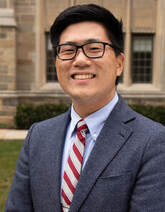


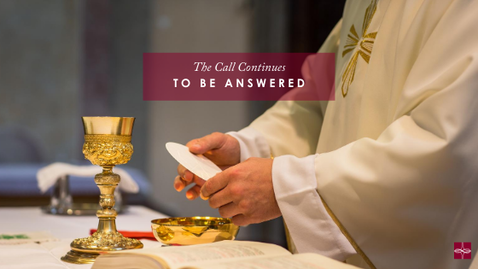

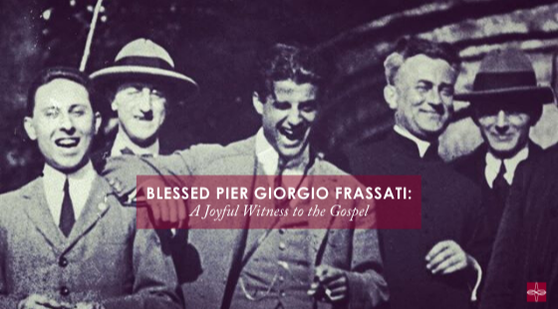







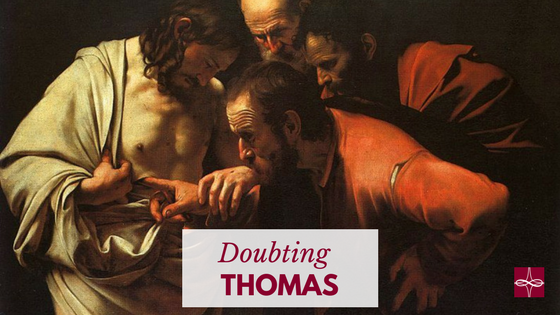

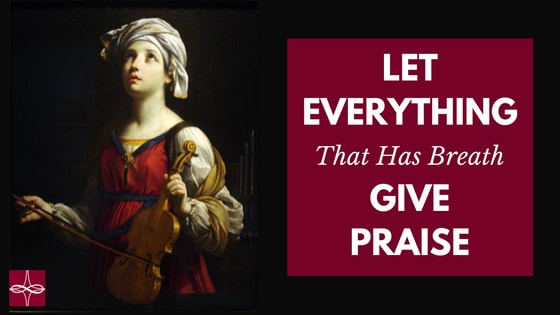

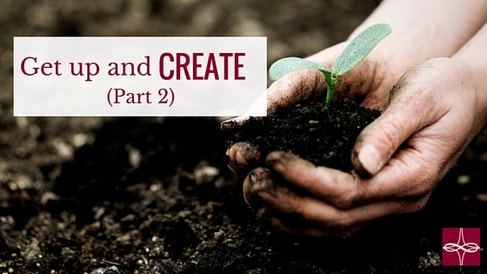

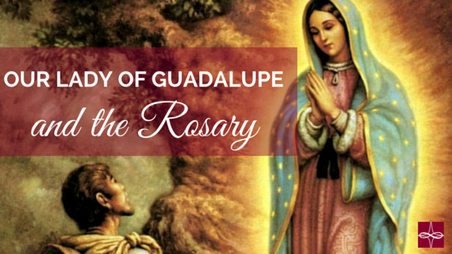

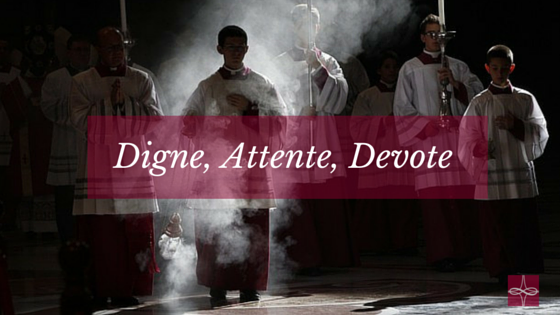

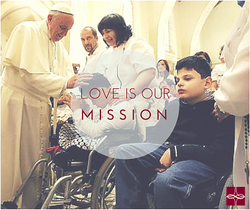



 RSS Feed
RSS Feed